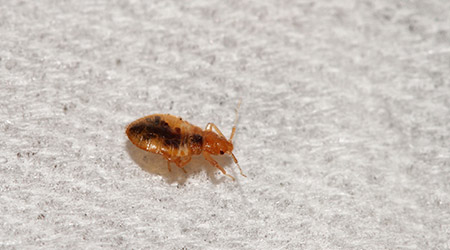
According to a new study from Penn State and North Carolina State, a new fungal biopesticide is highly effective even against bed bug populations that are insecticide resistant.
The research suggests that a new mycoinsecticide developed at Penn State may provide a new tool for managing bed bug infestations, which have surged in recent years.
There is evidence that many bed bug populations have developed resistance to pyrethroid insecticides. This resistance may lead to cross-resistance to other classes of insecticides, according to an article on the Infection Control Today website.
Aprehend is based on Beauveria bassiana, a natural fungus that causes disease in insects. Previous studies have shown that the formulation can be applied as a long-lasting barrier treatment, according to the article.
Bed bugs that cross the barrier acquire fungal spores and go on to spread these among insects that remain in their harborages, resulting in greater than 95 percent mortality within a week.
For more information, click here.

 The Down and Dirty on Cleaning in Virus Season
The Down and Dirty on Cleaning in Virus Season How Surfactant Use is Expanding in Commercial Cleaning
How Surfactant Use is Expanding in Commercial Cleaning